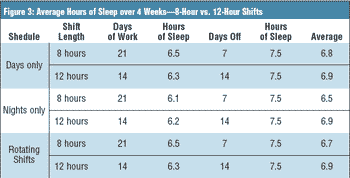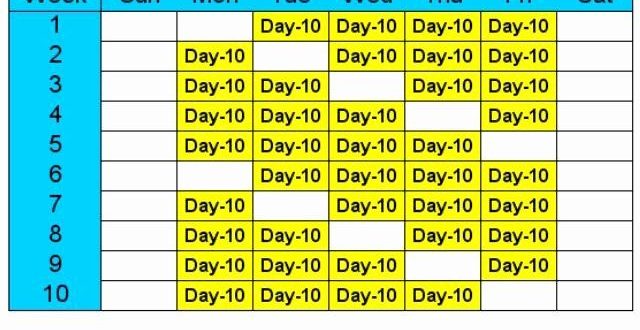Nurses are among the most in-demand workforce in the world. Many places need their services every day. Their presence also helps the system smoothly. Whether they work in a massive facility or a small one, it can be quite challenging to perform tasks without them.
Once the professionals join a workplace, they handle various responsibilities every day and attend to patients of all ages. Besides performing a lot of general tasks, they also work in specialty areas and advanced settings.
Since there is no guarantee as to what will happen next, nurses are always on standby to offer their services. Another unique thing about nursing professionals is the fact that they work long hours. Most professionals have ditched the eight-hour work shift and jumped to the more extended version of twelve-hour shifts.
In this article, we will also see why nurses opt for 12-hour work shifts instead of staying with the shorter ones.
Some Common Work Settings for Nurses include:
- Schools
- Senior citizens care facilities
- Hospitals
- Doctors’ offices
- Clinics
- Military
- Helicopter/Ambulance
- Private healthcare centers
- Home healthcare
- Pharmacies
- Ships
Besides these places, society may also require their services any time and any place.

While nurses require the basic degree for working in all the settings mentioned above, they also need additional certifications in various disciplines.
The following is a list of nurses along with eligibility criteria.
- Ambulatory Nurse: A nurse who works mainly in ambulances and attends emergency calls. A professional should have an associates degree for this job.
- Clinical Nurse Specialist: A professional nurse with a master’s degree and works in an advanced setting in various specialties.
- Nurse Anesthetist: A nurse with a bachelor’s degree and a certification or degree in the specialty. Nurse anesthetists’ primary responsibility is to offer pain medication before, during, and after an operation.
- Labor and Delivery Nurse: A nurse with an associate’s degree who assists in the delivery room.
- Family Nurse Practitioner: A nurse who is part of a team that offers “family-focused” care. A professional should hold a master’s degree for the job.
- Neonatal Nurse & NICU Nurse: Both should have a bachelor’s degree, and they take care of ill infants.
- School Nurse: Nurses with a bachelor’s degree can work as school nurses.
- Travel Nurse: A nurse with an associate’s degree who works in various places while traveling. They work freelance or under short-term contracts.
- Pediatric Nurse: A professional with an associates degree who works with children
No matter whatever the setting, nurses’ duties, and responsibilities don’t seem to end.
With everybody needing their assistance, it is no surprise why most nurses are working twelve-hour shifts these days.
Let us see some of the reasons for more nurses preferring to work 12-hour shifts.
According to surveys, many nurses prefer the long shift instead of the short one for the following reasons.
- Flexibility: A lot of nurses say that working longer shifts allow them to rest more when off duty. It also let them work at a regular pace instead of rushing. Besides they don’t have to work every day of the week and instead work just four days.
- Fewer Mistakes with Patients: Reports indicate that at least 37% of mistakes with medication, doses, failure to note down symptom changes happen when handing over shifts. The chance of committing errors decreases when nurses have to update their colleagues about patients fewer times during shift changes.
- Reduced Travel Time: As per surveys, the majority of nurses commute to their workplace. When they work long but fewer shifts, traveling time reduces up to a certain extent. As a result, they save on gas and vehicle maintenance.
However, while these are some positive aspects to working twelve-hour shifts, there are some disadvantages too.
- Less Time for Other Tasks: Nurses have 12 hours left after their shift. However, they also require sufficient rest before the following schedule. So, after deducting 7-8 hours of sleep, they only have a little time to do other things.
- Health Issues: While working a twelve-hour shift may seem like having more downtime, it can negatively affect nurses. They may suffer from stress, insomnia, mental anxiety, tiredness, and bodily disorders.
- Endless Fatigue: If the twelve-hour schedule covers both day and night, it can make the body continuously tired. No matter how much rest they take, it may not feel enough.
Some Tips to Reduce Fatigue and Stress

It depends upon the individual whether they want to work the 12-hour shift or the shorter version. But if nurses want to stay with the more extended work shift, the following tips can be helpful.
- Get Sufficient Rest: It may sound strange, but nurses should get adequate rest and sleep with work schedules lasting too long. Once their shift is over, nurses can prepare to have a sound and enough rest. It will maintain their health, and they will feel refreshed for the next schedule.
- Follow a Healthy Diet: Besides getting sufficient rest, nurses should also follow a suitable diet plan. Vegetables and fruits should always be a part of your meal, along with some protein. It is also important to drink enough water and healthy beverages.
- Meditate and Relax: Closing the eyes and breathing deeply from time to time can be quite helpful. It will enable nurses to stay calm and keep stress at bay. Whenever they feel a bit overwhelmed, practicing mindfulness can be beneficial.
- Don’t Miss Any Break: Your patients need you, but you require a few breaks too. So, when it is time, take it. Enjoy some snacks and use the restroom if you want. Even a few minutes’ rests can make you feel refreshed.
- Find Accommodation Near the Workplace: It may not be easy, but you could try finding a place nearby. That way, you won’t waste time commuting. Besides, you will have more free time to rest and do other things when your shift is over.
- Exercise: It sounds too exhausting, but you will feel energetic, fresh, and healthy if you work out sometimes. There is no need to do heavy stuff in the gym. You can take a walk, jog or run. You can also swim, go cycling and do some aerobics or yoga at home. Even a 30-45 minutes workout will do wonders.
While the tips will not take away all the negative effects entirely, they can be helpful to reduce stress and fatigue. So, if you are one of the professionals working a 12-hour shift, you can try them.
You can also find nursing communities and forums online to share ideas and tips about tackling twelve-hour work shifts. People with experience have more knowledge about the topic so it will be quite helpful.
 Nursing Trends
Nursing Trends







